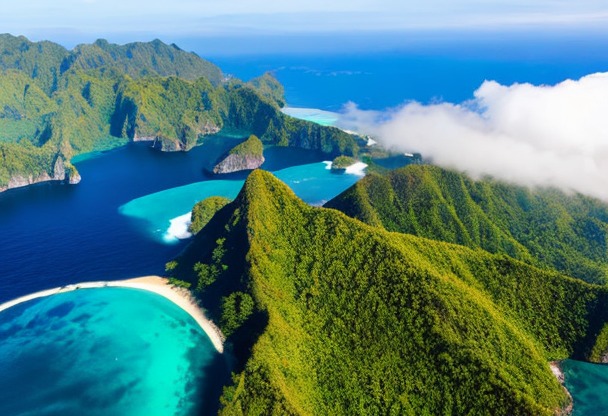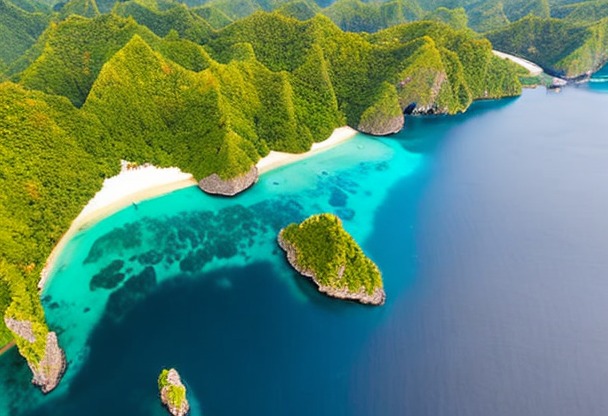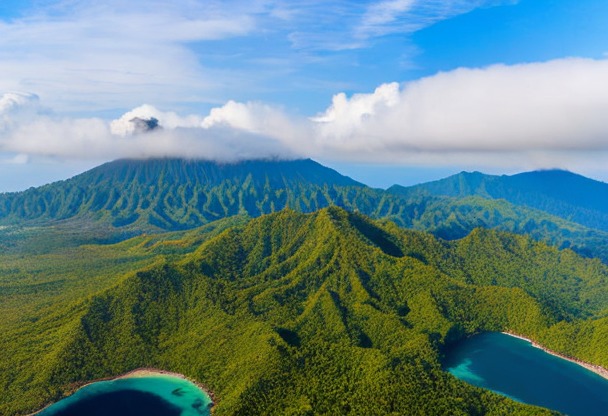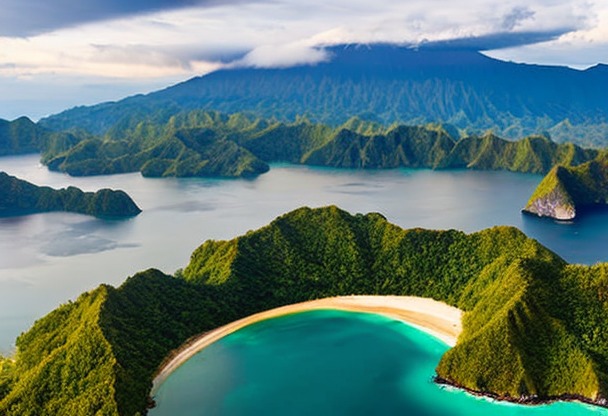Best time to travel to Indonesia
Choosing the right time for your trip to Indonesia can make all the difference. It's important to consider climatic elements, seasonal events and busy tourist periods to maximize your travel experience.

Location
Climate
Indonesian climate and seasons
With its humid tropical climate and year-round warm temperatures, Indonesia lies close to the equator. There are two main seasons:- There rainy seasonwhich usually runs from November to March, is characterized by higher rainfall and high humidity.
- There dry periodwhich runs from April to October, is characterized by slightly cooler temperatures and less precipitation.
Average temperatures in Indonesia
In Indonesia, temperatures remain relatively constant throughout the year, with minimal fluctuations between seasons. In some regions, average temperatures range from 27 to 30°C, with peaks of up to 35°C. Evenings are generally cooler, especially in mountainous regions.Tourist seasons in Indonesia
The influx of tourists fluctuates with the seasons and can have an impact on accommodation rates, the availability of activities and the local atmosphere. A distinction is made between:- During the dry season (June, July and August), the high season is characterized by a large number of visitors, higher accommodation prices and a lively atmosphere.
- During the rainy season, the period of low season means fewer tourists, lower prices and a more peaceful atmosphere.
- In spring and autumn, the average season offers a good balance between the two, with pleasant weather conditions and moderate attendance levels.
| Cultural event | Description | Location | Celebration date |
|---|---|---|---|
| Nyepi in Bali 🎉 | Nyepi is the Balinese New Year celebration, marking a day of total silence. No activity is permitted, including electricity and travel. Processions with ogoh-ogoh are organized the day before. | Bali | March or April |
| Bau Nyale Festival 🏖️ | Traditional celebration on the island of Lombok in February or March, honoring the legend of Princess Mandalika. Participants take to the beach to capture marine worms (nyale), symbols of prosperity. | Lombok | February or March |
| Kite Festival 🎏 | Bali's annual July festival features thousands of kites lighting up the sky. Competitions between villages are organized, as well as traditional shows to entertain visitors. | Bali | July |
Public holidays in Indonesia
Planning your trip around public holidays can help you experience unique moments and better understand the local culture. Here are some important public holidays in Indonesia:- August 17 marks the independence dayrepresenting Indonesia's declaration of independence. Parades and competitions are held all over the country.
- Ramadan ends with theEid el-Fitra major celebration for Indonesian Muslims. Celebrations extend over several days, including prayers, meals and family visits.
- In May, we celebrate Vesak festivalcommemorating the birth, enlightenment and death of Buddha. Buddhist temples organize processions and ceremonies, notably at Borobudur, where lanterns are thrown into the sky.
Insurance

Your credit card does not cover you in all situations, that is whyIt is essential to take out insurance before you leave to avoid any unpleasant surprises. If you need to see a doctor or be hospitalized, in some countries, medical costs are very high and you will then find yourself having to pay several thousand euros.
Our partner Chapka Insurance proposes the contract CAP ASSISTANCE 24/24 with many essential guarantees.


Flights

Your flight has been cancelled or delayed ?
You may be eligible for a compensation of up to €600 ! For this, lawyers are responsible for handling your claim with the airline and are only paid when the reimbursement is effective.
In conclusion, no financial risk for you, only advantages!
Immigration trends in Indonesia
In recent years, there has been a steady increase in the number of immigrants to Indonesia, mainly from neighboring Southeast Asian countries. According to information provided by the Indonesian government, there are around 75,000 foreigners living in Indonesia in 2019. The most commonly represented nationalities were:- Chinese (23 %)
- Japanese (12 %)
- Koreans (10 %)
- Indians (7 %)
- Americans (6 %)
Most popular visas in Indonesia
Indonesia offers different types of visas to meet the needs of international travelers and immigrants. The main visa categories are :Tourist visa
Tourist visas play a key role in visa applications in Indonesia. Indeed, with around 16 million foreign tourists visiting the country in 2019, the tourism sector plays an essential role in the Indonesian economy. To facilitate the arrival of tourists, Indonesia has introduced a visa exemption policy for citizens of 169 countries, allowing them to stay in the country visa-free for up to 30 days.Business Visa
The business visa is very much in demand among professionals carrying out temporary business activities in Indonesia. As a general rule, it is valid for 60 days, and can be extended on the spot if necessary.Social-budaya visa (cultural visit)
This visa allows foreigners to stay in Indonesia for cultural, social or family activities. With an initial duration of 60 days, it can be extended up to four times (for a total of 180 days).Work visa (KITAS)
Foreign workers who have been hired by an Indonesian company receive a work visa, also known as a KITAS. This visa is generally valid for one year, and can be extended for as long as the employment contract is in force.Retired Visa
Indonesia also attracts many foreign retirees wishing to enjoy its quality of life and pleasant climate. Retiree visas are available to people aged 55 and over, with sufficient financial resources to support themselves without working in the country.Key figures for international tourism in Indonesia
Tourism plays a key role in the Indonesian economy, accounting for 7.8 % of national GDP in 2019. In the same year, Indonesia welcomed nearly 16 million foreign visitors, representing an increase of 1.88 % on 2018. The most commonly represented nationalities were:- Chinese (22 %)
- Australians (12 %)
- Malaysians (10 %)
- Singaporeans (7 %)
- Japanese (4 %)
- Bali, the Island of the Gods, which alone attracts almost 40 % of international visitors.
- Lombok, a neighbouring island to Bali offering superb beaches and exceptional diving sites
- Jakarta, the country's capital and its main economic and cultural center
- Yogyakarta, a historic city in the heart of Java, renowned for its temples and rich artistic tradition
- Komodo, famous for its national park home to the Komodo dragons, an endemic species of giant monitor lizard.


